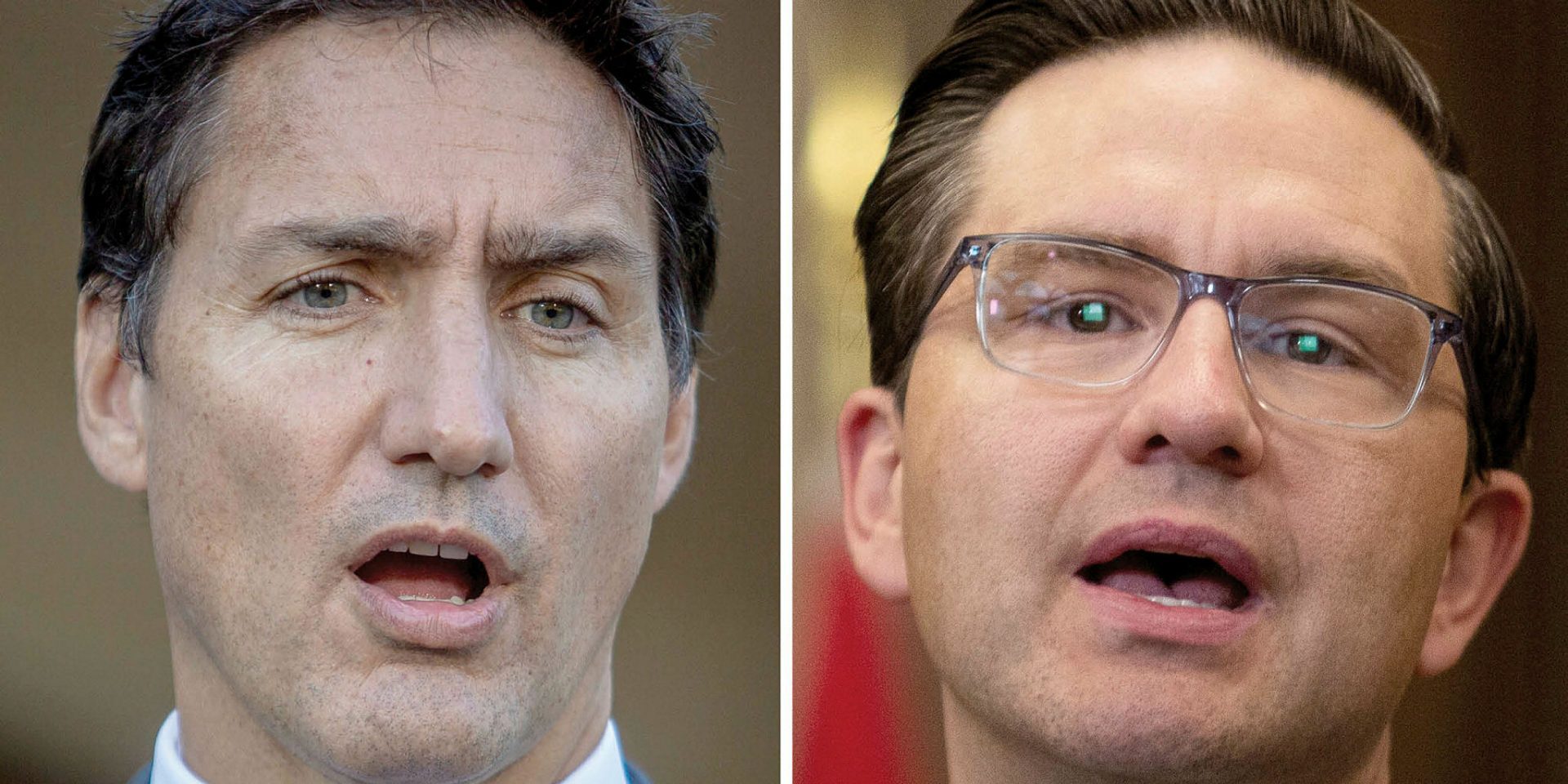Canada's Conservatives Face Defeat: Poilievre Loses His Seat

Table of Contents
Analysis of Poilievre's Campaign Strategy
Poilievre's campaign, while energetic and engaging for his base, ultimately proved insufficient to secure victory. Let's examine both its strengths and weaknesses.
Strengths of his Campaign:
Poilievre skillfully leveraged social media, connecting directly with younger voters and building a fervent online following. His populist messaging, particularly focusing on the rising cost of living and economic anxieties, resonated with a significant segment of the population.
- Effective social media strategy: His use of short-form video content and targeted advertising on platforms like TikTok and Instagram proved effective in reaching a younger demographic typically less engaged in traditional politics.
- Focus on economic anxieties: Poilievre's promises to address inflation and reduce the cost of living struck a chord with many Canadians struggling financially.
- Energetic rallies and grassroots mobilization: He cultivated a passionate base through numerous rallies and in-person events across the country.
However, analysts noted a disconnect between this energized base and broader voter appeal. "While Poilievre successfully mobilized a dedicated core of supporters, his message failed to resonate with a wider swathe of the electorate," commented political analyst Sarah Jones in a recent interview with the Globe and Mail.
Weaknesses of his Campaign:
Several factors contributed to Poilievre's defeat. His sometimes confrontational style and controversial statements alienated moderate voters. Furthermore, some believe his campaign lacked a cohesive long-term vision beyond addressing immediate economic concerns.
- Controversial statements and messaging: Certain policy pronouncements and public statements proved polarizing, alienating key demographics.
- Limited focus on social issues: The campaign appeared heavily focused on the economy, potentially neglecting other critical issues important to many voters.
- Messaging inconsistencies: At times, Poilievre's messaging appeared contradictory, creating confusion among potential supporters.
Comparison to Previous Conservative Leaders:
Compared to previous Conservative leaders like Stephen Harper, Poilievre’s campaign exhibited a stronger reliance on social media and populist rhetoric. While Harper focused on a more measured, centrist approach, Poilievre adopted a bolder, more confrontational style, a strategy that ultimately proved less successful in securing a broader base of support. This suggests that the Canadian electorate may be more receptive to a more moderate approach within the Conservative party.
Impact on the Conservative Party
Poilievre losing his seat has profound consequences for the Conservative Party.
Internal Divisions and Future Leadership:
The defeat could trigger internal strife within the party. Questions about leadership will inevitably arise, leading to potential power struggles and factionalism. Several names are already being floated as potential successors.
- Potential leadership review: Pressure for a leadership review is likely, especially if the party performs poorly in upcoming elections.
- Potential successors: Prominent figures within the party are expected to vie for leadership, potentially leading to internal divisions and protracted power struggles.
- Realignment of party strategy: The defeat could prompt a re-evaluation of the party's platform and campaign strategies.
Shifting Political Landscape in Canada:
Poilievre's defeat significantly alters Canada's political landscape. The Liberal Party, and potentially the NDP, may see opportunities to consolidate power and push forward their agendas. The Conservative Party faces the challenge of rebuilding and redefining its appeal to a broader electorate.
- Opportunities for Liberal Party: The Liberals may benefit from a weakened Conservative Party, potentially strengthening their position in upcoming elections.
- Strengthened NDP position: The NDP could gain further influence, particularly in coalition-building scenarios.
- Uncertainty for Conservative Party: The party faces an uncertain future, needing to address internal divisions and redefine its approach to win back voters.
Reaction and Public Opinion
The reaction to Poilievre losing his seat was swift and varied.
Media Coverage and Public Response:
Major news outlets across the country covered the outcome extensively, highlighting the surprise defeat and its potential ramifications. Social media platforms buzzed with diverse opinions, reflecting a range of emotions from celebration to disappointment.
- Diverse media coverage: News organizations offered varying analyses, emphasizing different aspects of the election result and its implications.
- Social media reactions: Social media platforms displayed a wide spectrum of opinions, illustrating the polarization of Canadian politics.
- Public polling data: Post-election polls offered insights into voter sentiment and shifts in public opinion.
The aftermath of Poilievre losing his seat marks a significant turning point for the Conservative Party. The loss, coupled with the reaction and analysis in the media and social media, reveals a need for the party to reassess its strategy, address internal divisions, and regain the trust of a broader electorate.
Conclusion: The Aftermath of Poilievre Losing His Seat – What's Next for Canadian Conservatives?
Poilievre's defeat is a watershed moment in Canadian politics. His campaign, while showcasing strengths in social media engagement and populist messaging, ultimately fell short due to weaknesses in broader appeal and messaging. The impact on the Conservative Party is substantial, forcing a reassessment of its leadership, strategy, and long-term vision. The shifting political landscape presents opportunities and challenges for all parties, setting the stage for a period of significant political realignment in Canada. What are your thoughts on the future of the Conservative Party after Poilievre's loss? Share your opinions in the comments below.

Featured Posts
-
 The Owen Family A Realistic Look At Farm Life
Apr 30, 2025
The Owen Family A Realistic Look At Farm Life
Apr 30, 2025 -
 Find Untucked Ru Pauls Drag Race Season 16 Episode 11 Free Streaming
Apr 30, 2025
Find Untucked Ru Pauls Drag Race Season 16 Episode 11 Free Streaming
Apr 30, 2025 -
 Targets Shift On Dei From Vocal Advocate To Altered Approach
Apr 30, 2025
Targets Shift On Dei From Vocal Advocate To Altered Approach
Apr 30, 2025 -
 The Power Of Music How Remember Monday Converted Online Hate Into Eurovision Gold
Apr 30, 2025
The Power Of Music How Remember Monday Converted Online Hate Into Eurovision Gold
Apr 30, 2025 -
 Family Seeks Justice After Inmates Torture And Murder At San Diego County Jail
Apr 30, 2025
Family Seeks Justice After Inmates Torture And Murder At San Diego County Jail
Apr 30, 2025
